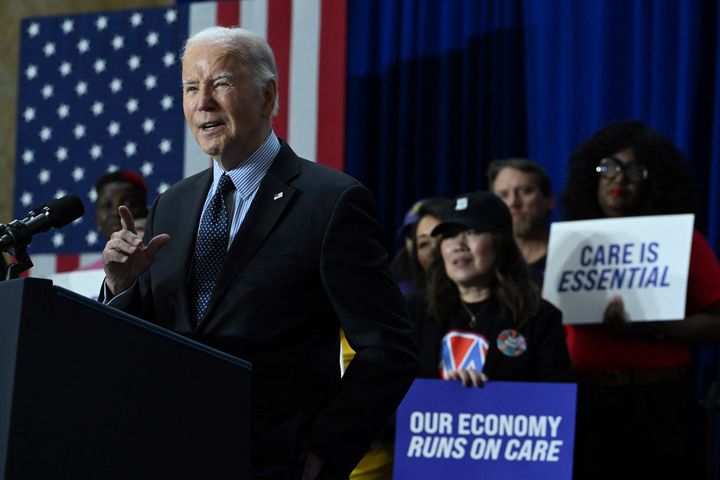The secretaries of state for Alabama and Ohio sent letters to President Joe Biden’s campaign, the Democratic National Committee and state parties warning that the president may miss the deadline to be included on their states’ general election ballots, even though both states have allowed candidates to appear on the ballots in similar circumstances in the past.
The letters warn that the Democratic Party nominating convention, scheduled to begin Aug. 19, falls after the date when each state is required by law to certify its general election ballots. In Ohio, ballots must be certified 90 days before the election, while in Alabama, the ballot certification deadline is 82 days prior.
“If this Office has not received a valid certificate of nomination from the Democratic Party following its convention by the statutory deadline, I will be unable to certify the names of the Democratic Party’s candidates for President and Vice President for ballot preparation for the 2024 general election,” Alabama Secretary of State Wes Allen, a Republican, wrote in a letter to the Alabama Democratic Party on Tuesday.
Ohio Secretary of State Frank LaRose sent his letter on April 6 to Biden and the national and state Democratic parties, saying the president would be excluded from the ballot unless the convention date changes or the state legislature grants a waiver.
Democrats do not appear immediately concerned about the letters, claiming that this has happened before and been resolved numerous times.
“Joe Biden will be on the ballot in all 50 states,” a Biden campaign official said in a statement. “State officials have the ability to grant provisional ballot access certification prior to the conclusion of presidential nominating conventions. In 2020 alone, states like Alabama, Illinois, Montana, and Washington all allowed provisional certification for Democratic and Republican nominees.”
“We’re reviewing the letter and working with a number of partners, including the Biden campaign and DNC, on potential solutions,” said Matt Keyes, spokesperson for the Ohio Democratic Party.

The Ohio ballot deadline has been in effect since 2009, while the Alabama deadline has been law since 1975. Since then, however, both states have put major party nominees on the ballot even when their nominating conventions fell after the required deadlines.
Most recently, the Ohio legislature passed language in 2020 granting a waiver on the ballot access deadline for Republicans. Ohio also changed the deadline in 2012 for both parties. Alabama provided provisional qualification to both Democrats and Republicans in 2020 and also changed the deadline by statute for Republicans, who held their nominating convention from Aug. 24 to Aug. 27.
If Republicans in either state refused to provide the same provisional qualification or statutory changes their states have provided in the past, Democrats would sue to overturn their respective deadlines.
Courts have repeatedly thrown out efforts to restrict ballot access through arbitrary deadlines over the years, including the Supreme Court doing so twice for minor party candidates in Ohio. The court’s most famous case on the subject is the 1980 decision in Anderson v. Celebrezze, which found that Ohio’s filing deadline for independent candidates violated the 14th Amendment’s equal protection clause by denying candidates the ability to run within a certain time frame.
Democrats believe the judiciary would find the deadlines imposed by Alabama and Ohio to be unconstitutional burdens if they were forced to go to court.
Efforts to exclude a major party candidate from the ballot were recently rejected by the Supreme Court in the case of Trump v. Anderson, where the Colorado Supreme Court had ruled Donald Trump to be removed from the state’s ballot for violating the 14th Amendment’s exclusion of oath-breaking insurrectionists from holding office.
In that decision, the court found that Colorado’s decision to exclude Trump would “create a chaotic state-by-state patchwork, at odds with our Nation’s federalism principles.”
Disclaimer: The copyright of this article belongs to the original author. Reposting this article is solely for the purpose of information dissemination and does not constitute any investment advice. If there is any infringement, please contact us immediately. We will make corrections or deletions as necessary. Thank you.
